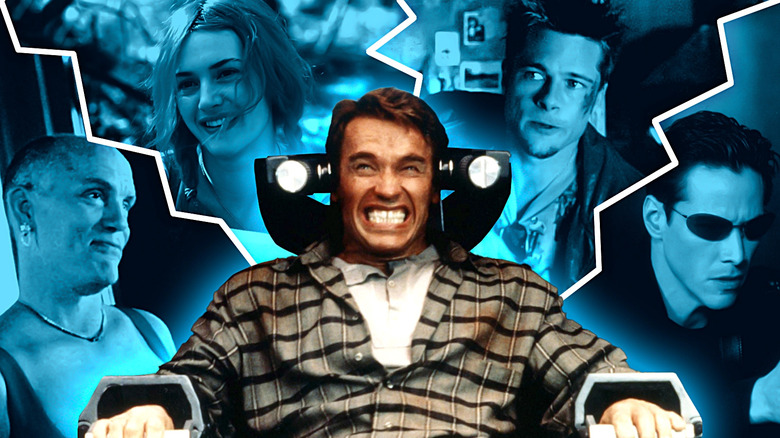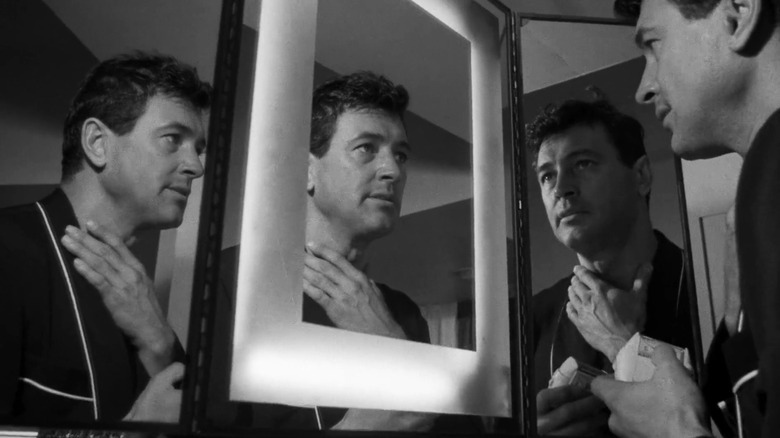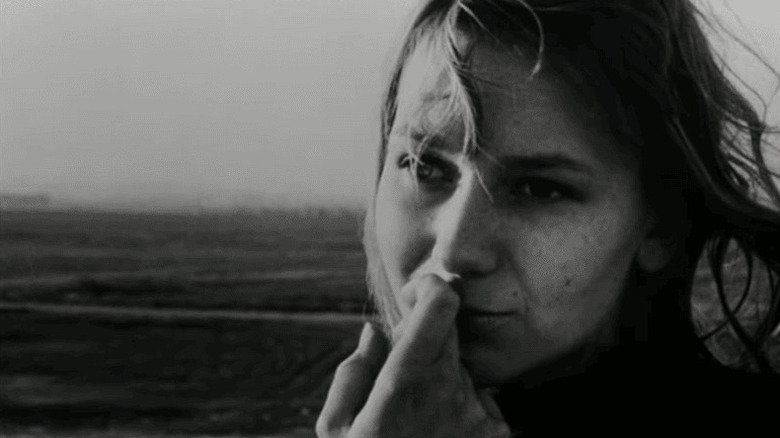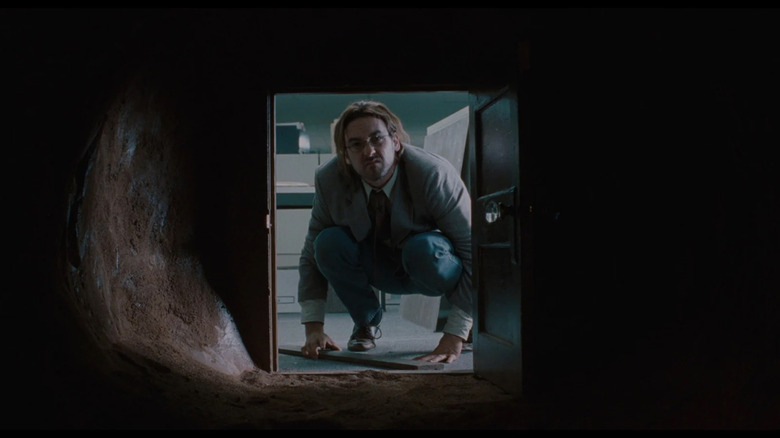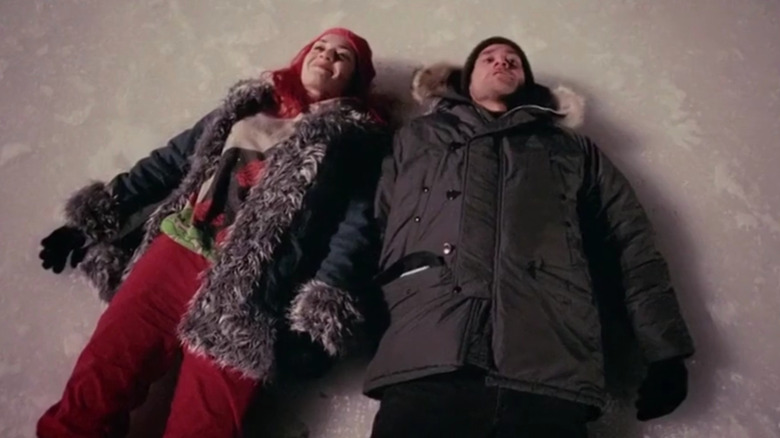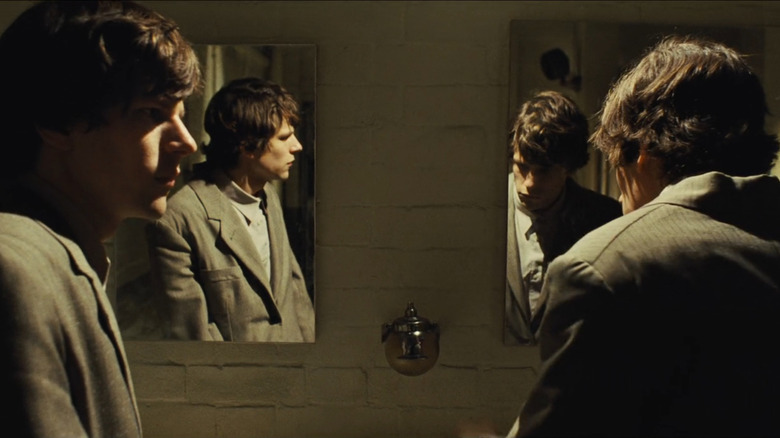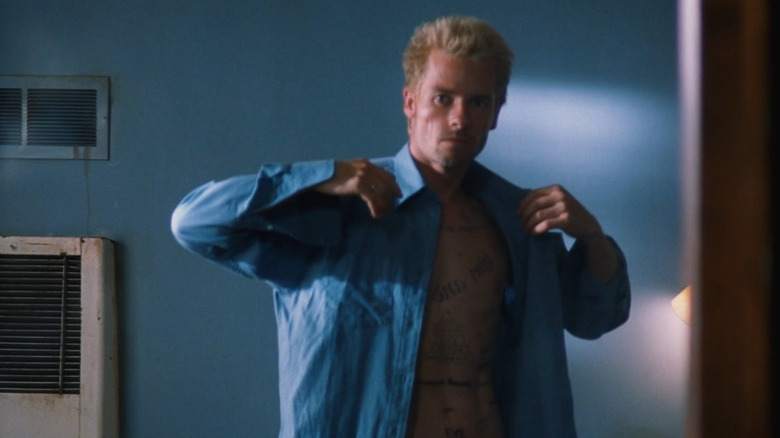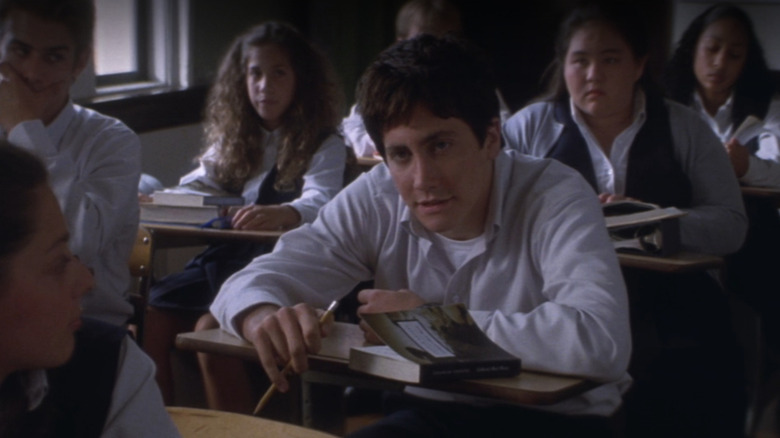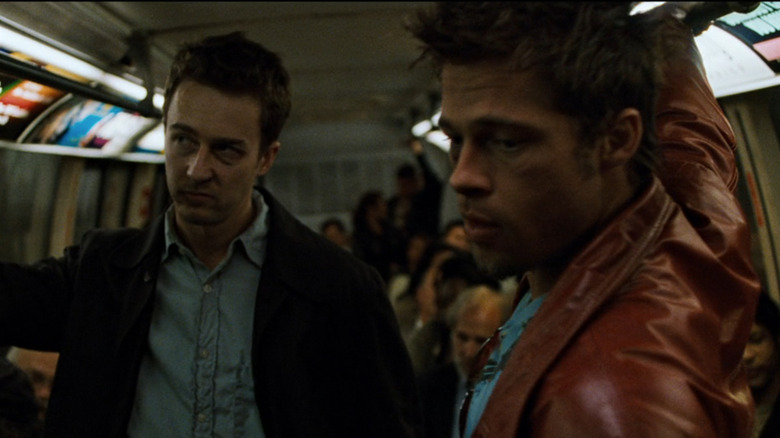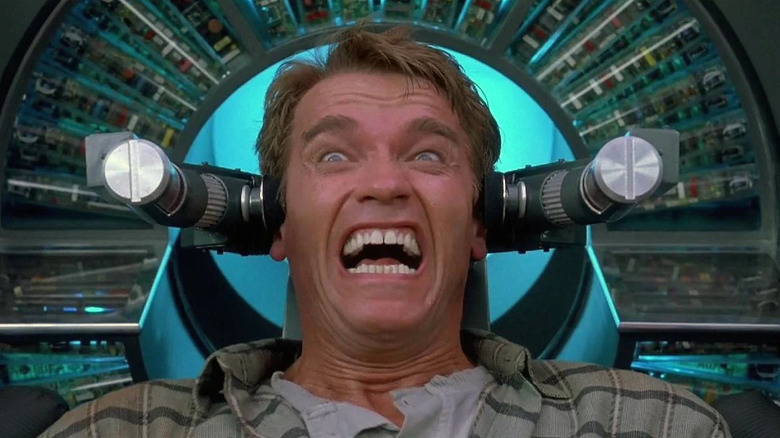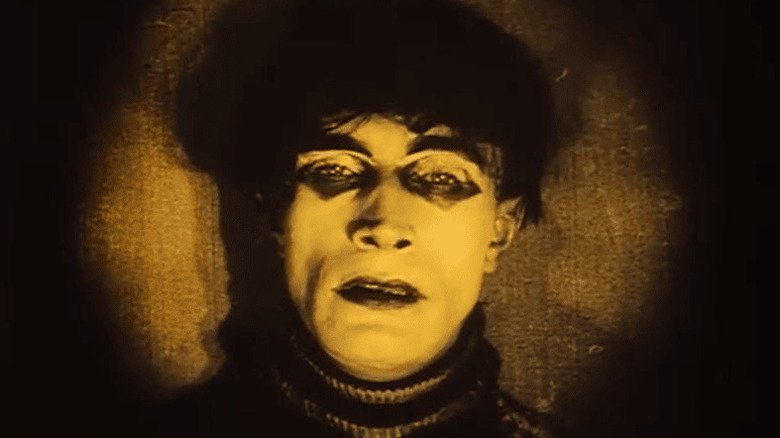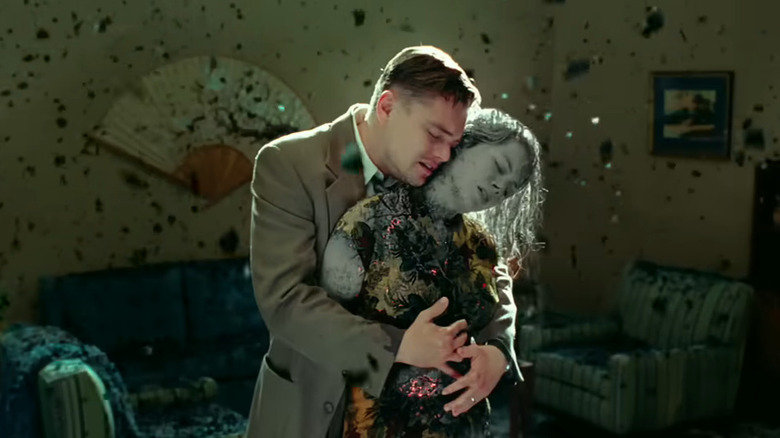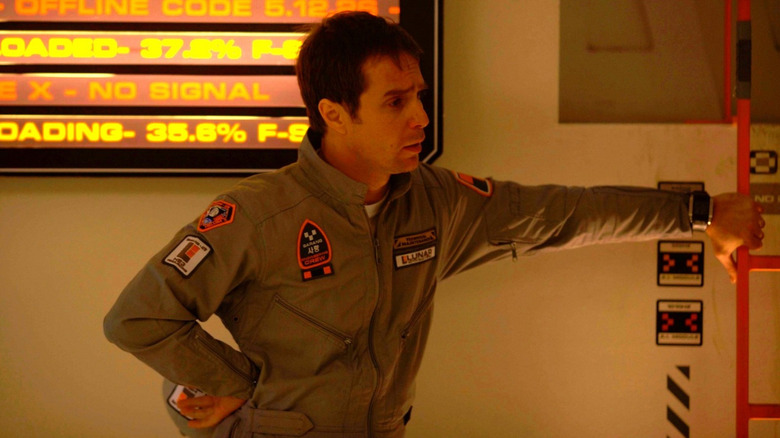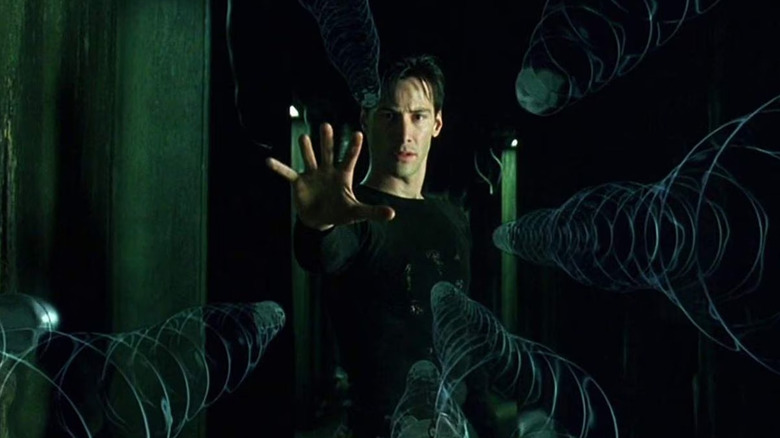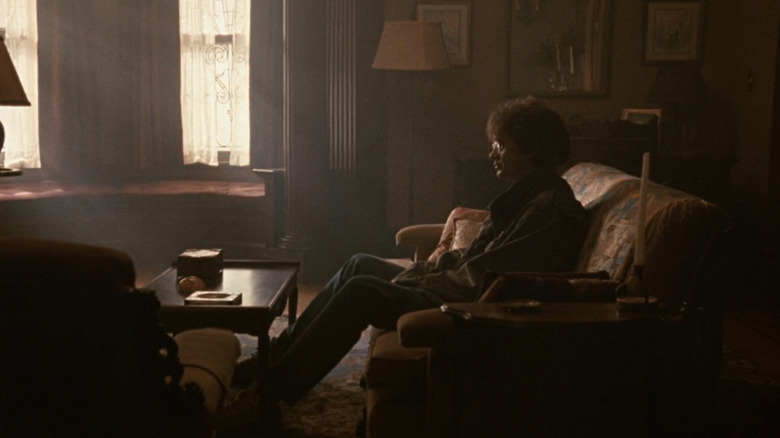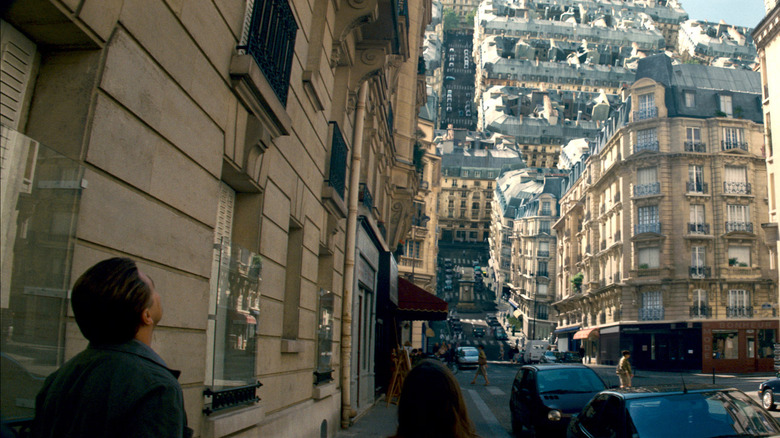The 15 Best Mind-Bending Movies Ever Made, Ranked
We may receive a commission on purchases made from links.
Some people will complain that movies these days feel the need to spell out every little narrative beat. That they have to be made under the assumption that all of the viewers are watching the film and scrolling through TikTok at the same time, giving its actual story the bare minimum of attention. While that might the case with some movies, especially those that are released directly onto streaming platforms, there are still plenty of films out there that don't especially care how hard your noodle has to work to follow along.
From science fiction films with confoundingly complicated premises to psychological thrillers that make both their characters and the audiences start to question the very concept of reality itself, mind-bending films are all over the place. A word of warning: These movies were not made to be watched while doing laundry or making dinner, so if you want to give yourself the best chance of enjoying them, sit down, put the phone away, and pay close attention.
Here are the most mind-bending movies ever made, ranked.
15. Seconds
"Seconds" may not be the most mind-bending film on this list, all things considered, but it's absolutely the most unsettling. The story revolves around Arthur (Rock Hudson), a dull suburban banker staring down a serious mid-life crisis. Bored with his job, his wife, and everything else about his quiet little life, he makes the decision to enlist the services of a mysterious organization that uses new technology to give him a brand new, much more youthful body. Now going by the name Tony, he's free to start an entirely new life, unencumbered by the ties that previously bound him.
At first, Tony revels in the excitement of being a completely different person with youth and beauty on his side, it isn't long before he grows disillusioned. But this transformation process is a one-way street, and if he wants out of his life as Tony, he's going to have to make a serious sacrifice. The darkest and most disturbing moments of the film come at the very end, when Arthur realizes exactly what had to happen for him to taken on the persona of Tony, and what in turn is about to happen to him. "Seconds," most assuredly, is not for the faint of heart, but might make for a great double feature with "The Substance."
14. La Jetee
A short film from French director Chris Marker, "La Jetee" was the direct inspiration for the 1990s time-traveling thriller "12 Monkeys," which should give you some indication of how straightforward its plot is. In the years following a wildly destructive World War III, scientists work to send a man back in time to the pre-war period. Although few people are able to withstand the trauma of time travel, our unnamed protagonist is able to manage it due to his ties to the past, with one powerful memory from his youth of watching a man murdered on a pier right before his eyes.
So he travels back in time, meets a woman, and falls in love. But he also runs afoul of the people who sent him through time in the first place and gets rescued by beings from the distant future. Finally, he learns, poignantly, the mystery of the murdered man's identity. "La Jetee" may be a short film told almost exclusively through still images, but it packs an emotional punch that resonates, fittingly, through the years.
13. Being John Malkovich
Imagine having a window into someone else's consciousness, being able to occupy their brain to the extent that you can actually control their actions. The characters in the darkly comedic "Being John Malkovich" don't have to imagine. In this surreal Spike Jonze film, Craig (a never-better John Cusack) — a puppeteer turned office drone — discovers a mysterious door that allows him access to the brain of actor John Malkovich (played, of course, by John Malkovich).
Craig only gets 15 minutes before is unceremoniously spit out on the side of the New Jersey Turnpike, but for those 15 minutes, Malkovich is under his control. The problems really start when Craig gets other people involved, who have their own reasons for wanting to toy with the actor, and things get so complicated that even John Malkovich is beginning to question what's going on. Although "Being John Malkovich" seems like a niche concept, it resonated with mainstream audiences, earning three Academy Award nominations, including Best Director, Best Actress (Catherine Keener), and Best Original Screenplay (Charlie Kaufman).
12. Eternal Sunshine of the Spotless Mind
Look, as much as you might tell yourself that you're going to try to be friends with your ex, break-ups can be really hard. To be fair, though, they're usually not "perform outpatient brain surgery to literally erase all traces of them from your mind" hard. That's what we get in "Eternal Sunshine of the Spotless Mind," an imaginative, melancholy exploration of lost love and memory. Joel (Jim Carrey) and Clementine (Kate Winslet) have gone through a rocky breakup, and Joel is devastated to learn that Clementine has undergone a procedure to remove all trace of him from her brain.
In the ultimate "you can't fire me, I quit" move, Joel decides to do the same thing. But as he begins to relive the memories of their time together, he realizes that he doesn't actually want to forget her after all. What follows is a journey through his mind, as he desperately tries to cling to flashes of their relationship, all of which are rapidly disappearing before his very eyes. "Eternal Sunshine of the Spotless Mind" uses the prospect of forgetting a failed romance to remind us of how valuable our memories are — even the painful ones.
11. The Double
Most people would agree that one Jesse Eisenberg is exactly the correct number of Jesse Eisenbergs that the world needs, or for that matter, can sustain. But in "The Double," based on a novella by Russian author Fyodor Dostoyevsky, Eisenberg plays Simon, a mild-mannered office worker who is alarmed when his boss introduces his new colleague — James, who is the spitting image of Simon.
Only James seems to have gotten all the cool traits. Where Simon is timid with low self-esteem, James is confident and gregarious. Watching James succeed where he has so often failed and become more enmeshed in his life drives Simon to his breaking point. A dark comedy that uses Jesse Eisenberg and Mia Wasikowska's talents to their fullest, director Richard Ayoade creates something sinister yet still somehow funny with "The Double." Bleak yet inherently compelling, "The Double" lives up to the excellence of its literary origins.
10. Memento
Traditional storytelling dictates that you start at the beginning and end at the ending, with a bunch of things happening along the way. But what if you have a protagonist who struggles with his short-term memory, and can only piece together his personal narrative with a combination of clues from tattoos and notes left behind for him to discover each morning when he wakes up? That's what we get in "Memento," where Leonard Shelby (Guy Pearce) only stands a chance of finding his wife's killer by using this complex personal storytelling system to keep track of what he's learned each day and then almost immediately forgotten.
If this wasn't confusing enough, director Christopher Nolan makes the choice to tell much of the film in reverse-chronological order. From start to finish, "Memento" keeps the audience on the edge of their seats and unable to figure out exactly where this rollercoaster ride is going. Despite its obfuscating nature, "Memento" was a major box office success, earning two Academy Awards for Best Original Screenplay and Best Editing, which it richly deserved.
9. Donnie Darko
As James Stewart in "Harvey" can tell you, things start to get weird when you claim to see a giant invisible rabbit. But that's exactly what happens to Donnie (Jake Gyllenhaal) in the endlessly strange "Donnie Darko" — and what's more, his giant rabbit tells him the exact date that the world is going to end. As a maladjusted teen living in a suburban town feels as though its constantly teetering on the edge of heightened reality, his life isn't exactly normal to begin with. This strange sense of surrealism only grows when Donnie somehow survives a plane crashing into his house, saved by his tendency to sleepwalk at night.
Jake Gyllenhaal has his star-making turn in the film's lead role, but "Donnie Darko" also gives us excellent performances from actors who had faded from the limelight at the time of the film's release, including Drew Barrymore and Patrick Swayze. Although "Donnie Darko" stumbled in theaters — October 2001 was perhaps not the best time to be marketing a film that revolved around a plane crash — it has since developed a cult following, with fans still parsing through its meaning decades later.
8. Fight Club
"Fight Club," the film that reminds us that men will do just about anything — including starting a weird little misogynistic cult where they beat each other senseless and blow up buildings — to avoid going to therapy. The Narrator (Edward Norton) is profoundly dissatisfied with his life. He hates his dull office job and can only find solace in going to support groups for problems that he doesn't have, the raw emotions of the participants allowing him some measure of vulnerability. But things change when he meets Tyler Durden (Brad Pitt), who seems to have things totally figured out. Sometimes, Tyler suggests, men just need to beat each other up.
Together, they create a fight club, which in turn quickly morphs into a cult of masculinity. Our Narrator thinks that Tyler might be taking things a little too far. But little does he know that he and Tyler have a lot more in common than he originally thought. Although a lot of "Fight Club" fans have had a tendency to take away the wrong message from the film, it's nonetheless an edgy exploration of toxic masculinity with a show-stopping final twist.
7. Total Recall
Was there an actor who had more of a stranglehold on dystopian science fiction films in the 1980s and early 1990s than Arnold Schwarzenegger? We don't think so. In "Total Recall," he stars as Douglas Quaid, a construction worker who decides to take advantage of a service that plants false memories in your brain — that way you can have all the memories of a lush tropical vacation, for example, without having to actually take the time and expense to travel. But almost immediately, things get weird. The process unlocks something in his brain, and he suddenly remembers that he's not actually a construction worker at all, but a secret agent on Mars. This realization sends him on a wild journey of survival against those who want him dead.
Or at least, that's what we think happens. "Total Recall" never confirms to the audience whether Schwarzenegger is actually a spy, or if this is all part of an elaborate series of false memories that are being implanted in his brain to give him a bit of an adventure. It's this ambiguity that makes "Total Recall" such an enduring science fiction classic and one of Schwarzenegger's best films.
6. The Cabinet of Dr. Caligari
Released in Germany all the way back in 1920, "The Cabinet of Dr. Caligari" is a classic of German expressionism, all distorted angles and foreboding shadows. Although it's often considered a horror film, it also dips a toe into psychological thriller territory with its innovative framing story.
When we first meet Franzis (Friedrich Feher) at the beginning of the film, he appears to be visiting his beloved fiancee in a psychiatric institution, where he shares the tale of an incredible event that took place earlier in their lives. In this memory, Franzis, his fiancee Jane (Lil Dagover), and their friend Alan (Hans Heinrich von Twardowski) encounter the ominous Dr. Caligari and his sleep-walking minion Cesare (Conrad Veidt). What follows is a tale of kidnapping and murder — but did any of it really happen? You might not be so sure by the time it's over.
In a political landscape filled with disillusionment and distrust of authority figures, the unexpected and in some ways ambiguous ending of the film speaks to the social reality of life in post-WWI Germany.
5. Shutter Island
The mind can do some pretty impressive things. At the heart of "Shutter Island," a psychological thriller from Martin Scorsese, a U.S. Marshal (Teddy, played by Leonardo DiCaprio) travels to an imposing psychiatric institution on an island off the coast of New England. His mission is a missing persons case: A woman who had previously been committed to the hospital after drowning her children has suddenly disappeared. But the longer Teddy spends on Shutter Island, the more things start to get ... complicated.
For starters, is he actually a U.S. Marshal on assignment, or is he a patient at the hospital whose mind is trying to grapple with the unthinkable deeds in his past? (Here, you see the influence of "The Cabinet of Dr. Caligari" nearly a century later.) The line between his two personas is paper thin, as DiCaprio's character struggles with how much reality he's emotionally capable of coping with. Dark, foreboding, and genuinely disturbing at times, "Shutter Island" is one of Scorsese's lesser celebrated, but it's also one of his most rewarding.
4. Moon
What makes a person a person? Is a clone a person if they exhibit sentience and free will, even if they were created rather than born? "Moon" revolves around the experiences of Sam Bell (Sam Rockwell), who is nearing the end of a lonely mission in space. He's entirely by himself, with only recorded video messages from his wife to keep him company, but he's only got a few more weeks left, and then he can return home. Or at least, that's what he thinks.
When he suffers an injury while retrieving a canister of helium-3 and then wakes up apparently unharmed back in his ship, Sam becomes a little suspicious. When he finds an unconscious version of himself out on the planet's surface, the truth becomes clear: He is not the real Sam Bell but merely a copy of the original. At the same time, however, he and his counterpart face a philosophical conundrum. If they have all of Sam Bell's memories, along with his sense of self, what distinguishes them from the original? "Moon" luxuriates in these complexities, creating a thoughtful viewing experience that is bolstered by the impeccable, darkly comedic lead performance from Rockwell.
3. The Matrix
In "The Matrix," none of what you see around you is real. Although you seem to be living an ordinary life, you're actually in a giant computer simulation, kept docile so robots in the real world can feast off of you. Wild stuff, right? When John Anderson (Keanu Reeves) is told about the lies surrounding his version of reality, at first he doesn't believe it. But when he takes a leap of faith and follows Trinity (Carrie Ann Moss) and Morpheus (Laurence Fishburne), leaving the Matrix and waking in the real world for the first time, the truth is impossible to ignore.
What's more, he's not just an everyday Joe in a world where humans are either food for robots or waging a brutal underground rebellion against their mechanical overlords — he's basically their Messiah. Filled to the brim with philosophical musings and action sequences that combine expert choreography and innovative filmmaking techniques, "The Matrix" became an instant genre classic, one that has generated three sequels that expand on its complex mythology.
2. Jacob's Ladder
Nothing in "Jacob's Ladder" is quite what it seems — and we mean nothing. Tim Robbins stars as a Vietnam War veteran struggling with his perception of reality. Throughout the film, he experiences frequent flashbacks, hallucinations, and visions, all of which threaten the loose tether holding him to some semblance of time and place. Each time he feels as though he's getting close to some explanation for what he's experiencing, the rug is pulled out from him, upending everything he thinks he knows. Is his family alive or dead? Did his unit serve in Vietnam, or were they discharged as a result of psychological instability? Did Jacob ever actually return from the war, or is he still there? We don't know, man, your guess is as good as ours.
The sense of disassociation that permeates the film is palatable for audiences, making us all question what we're seeing just as much as Jacob does. "Jacob's Ladder" is the kind of film that benefits from repeated viewings, as each new watch will give you new insight into everything it's got going on. Just don't think too hard, you'll give yourself a headache.
1. Inception
The narrative of "Inception" is built on shifting sands, perpetually wrong-footing the audience with its constant battle between dreams and reality, essentially becoming an enigma wrapped in a puzzle with a few sprinkles of obtuseness for good measure. In this film from Christopher Nolan (the master of the cinematic mind-bender, it would seem), Leonardo DiCaprio stars as a swindler who sneaks into the dreams of his targets, subtly manipulating them so that he's able to extract the information that he needs.
Though his job often involves taking something out of a dream, his latest assignment requires him to put something into it — in this case, planting the kernel of an idea that will in turn cause the target to take a specific action in the real world. "Inception" is best known for its spellbinding visuals, giving us an inventive interpretation of the dream world as a sort of M.C. Escher-like landscape perpetually folding in on itself. "Inception" (originally conceived as a horror film) was not just a hit at the box office, but it earned a great deal of critical praise, taking home four Academy Awards for Best Cinematography, Best Visual Effects, Best Sound Mixing, and Best Sound Editing.
